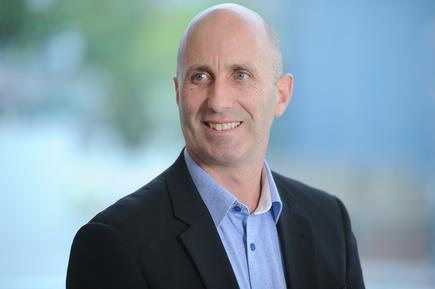Prepare for the 4th industrial revolution, now
- 21 May, 2018 10:00
Vic Crone, chief executive of Callaghan innovation, says New Zealand has the bones of a strong digital economy.
It has a strong growth record and is a top five digital nation with an educated workforce, good policy settings and early adopters of technology.
New Zealand also enjoys a good business reputation as being the easiest country in the world to do business and the least corrupt.
But it also faces challenges, as the country heads into the fourth industrial revolution.
“Our ability to understand technology and apply that to the business is critical for our country,” says Crone, of the current period that is characterised by cyber physical systems and Internet of Things.
The next stage, which is AI Automation 1.0 is projected to occur in 2025, and will see the dawn of mass unemployment.
She says by 2030, there will be enough jobs for everybody but the challenge is in the transition.
"Our ability to understand technology and apply that to the business is critical for our country,” says Crone, one of the speakers at the opening of this year’s TechWeek.

All businesses, every single government agency and the not for profit charity sector will be impacted by this, she states.
This involves making sure we are educating our workers, and our young people so they can participate in the opportunities in the next decade.
She says leaders of business, industries and countries will also face challenges.
New leadership skills will be demanded such as EQ, entrepreneurial intelligence, the ability to be agile and understand where this technology will impact the organisation, and to pivot the organisation to take advantage of that, she says.
 Credit: Divina Paredes
Credit: Divina ParedesAnother speaker, Peter Beck, founder and chief executive of Rocket Lab, shares insights on how he grew his company, which is revolutionising access to for small satellites.
Small satellites are the fastest growing sector in the market, he says. But when he was building his company, he got a lot of detractors..
“When you are trying to do something new, you get a lot of ‘nos’,” says Beck. “Walk past the ‘nos’.
“Sometimes, no is just yes, on a different day.”
Never be afraid of hard work, he adds.
At the same time, he advises to go after big massive problems and opportunities.
It is a huge amount of work to go after the big problems, but little problems require the same amount of work, he points out.
The work effort, stress and time away from your wife and children is the same for building a 100 dollar business to a 100 billion dollar business, he says.
He espouses the concept of failing fast. “Don’t study forever, don’t mess around, or procrastinate.
“Just get on with it. Pick a direction for a piece of technology and just go with it.
“The worst is to sit, study, procrastinate and use the time unwisely.”
A nation of UpStarters
Prime Minister Jacinda Ardern addresses the conference - by appearing as a hologram.
“Given the focus of the week, this seems appropriate,” says Jardern, in what is believed to be another world first for a prime minister undertaking an official engagement as a hologram.
Ardern launched The New Zealand Tech and Innovation Story, the UpStarters, a report prepared by the New Zealand Tech with support from New Zealand Trade and Enterprise, New Zealand Story Group and the Ministry of Business, Innovation and Employment.
The report is part of the Building a Digital Nation’s report work plan and includes stories on Kiwi organisations “innovating from the edge’ such as Rocket Lab, Weta Digital, Comvita, Agrigate and Precision Seafood Harvest.
“We have always been a nation of innovators,” says Ardern.
“For one, our place at the edge of the world is bringing a unique way of approaching challenges. We fellow good ideas wherever they lead, and we go beyond accepted wisdom...We are a nation of UpStarters!
She says the goal is to establish New Zealand’s reputation in key offshore markets as the compelling and credible source of world-class technology solutions.
“The potential economic and social benefits of a truly digital nation are significant,” she says.
The Technology Investment Network’s 2017 TIN100 report showed that the technology sector is now the country’s third largest and fastest growing sector, with with overseas earnings reaching $7 billion.
“We can do better than that and this government wants to make ICT the second largest contributor to GDP by 2025,” says Ardern.
“It’s about broadening perceptions of New Zealand and New Zealanders, and what makes the technology they create unique,” says NZTech chief executive Graeme Muller, on the UpStarters report.
“Our tech firms are exporting amazing technology to the world, and the UpStarters story will allow them to stand on each other’s shoulders and together build New Zealand’s international reputation.”

David Downs, general manager at New Zealand Trade and Enterprise and the co-author of No.8 Re-charged, says the UpStarters story reimagines the old ‘number 8 wire’ mentality for a high-tech world.
“It is also deeply rooted in the Māori idea of the pōtiki spirit - the attitude of the youngest child in the family, who pushes boundaries and takes more chances than the rest,” he says.
“We want to break through some of the stereotypes of New Zealand as just a tourist destination with beautiful scenery. We have all that, but we also have a lot more and this story is a big step forward in ensuring our growing tech sector receives that same recognition.”




